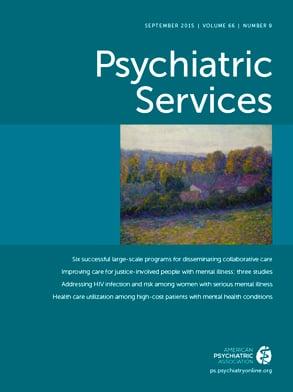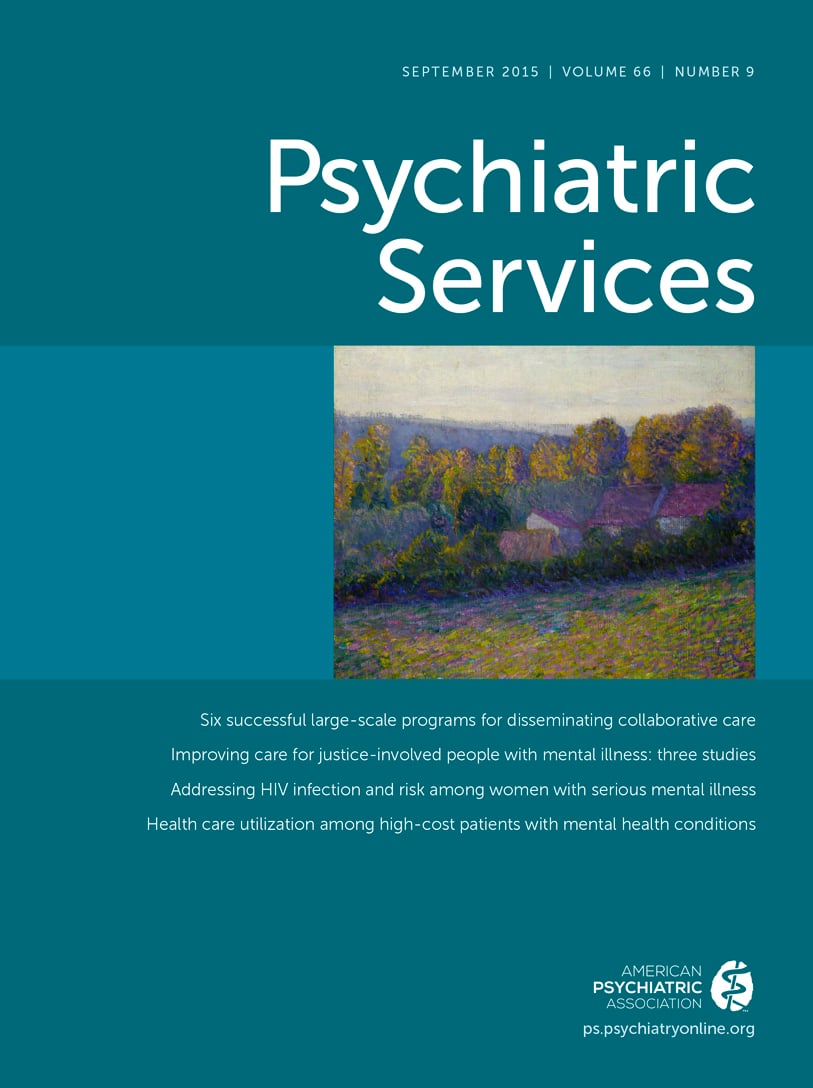TO THE EDITOR: Depression remains a leading cause of global disease burden (
1). Community mental health therapists often report having an “eclectic” or “integrative” orientation, but what constitutes treatment as usual is largely unknown, particularly in the treatment of depressed adults. However, research has identified common elements that cut across evidence-based psychosocial interventions (EBPIs) and practice elements that reflect components of manualized programs at the technique level (
2). This study characterized treatment as usual at the level of common or practice elements with respect to therapy for depressed adults provided by community mental health therapists.
Therapists (N=165; 67% licensed; primarily master’s level) from one of the largest not-for-profit community mental health service providers completed a survey exploring their use of 45 practice elements (for example, agenda setting, cognitive defusion, taking an interpersonal inventory, and insight building) reflecting components of eight EBPIs: acceptance and commitment therapy, cognitive-behavioral therapy (CBT), behavioral activation (BA), brief psychodynamic therapy (BPT), interpersonal therapy (IPT), mindfulness-based CBT (MBCBT), problem-solving therapy (PST), and self-control therapy (SCT). Therapists were also asked about their familiarity with EBPIs and the perceived fit with clients’ needs. Practice elements were derived from review and content analysis of articles, manuals, and Web sites; only unique elements that could be defined as techniques were included.
Therapists were most familiar with CBT, followed by MBCBT, PST, IPT, BPT, BA, SCT, and acceptance and commitment therapy. Perceived fit with client needs mirrored familiarity; CBT was perceived, on average, as a good to great fit and the best of the eight EBPIs. Therapists reported using a mean±SD of 17.1±7.76 practice elements with their depressed adult clients at least 75% of the time in their clinical work. Most reported using cognitive restructuring (N=137, 83%), problem solving (N=125, 76%), and goal setting (N=122, 74%). Few reported using interpersonal transference (N=12, 7%), didactic persuasion (N=17, 10%), and case conceptualization (N=20, 12%). [Tables presenting further details are available in an online data supplement to this letter.]
Results indicate a moderate level of familiarity with EBPIs for adult depression. It is likely that the self-reported ratings of familiarity overestimated actual knowledge and skill levels (
3). Although therapists reported that CBT is a good to great fit with the needs of depressed adult clients, none of the EBPIs emerged as an excellent fit; the wide variation in endorsement of practice elements across numerous EBPIs may account for this finding. Results suggest that therapists use many practice elements and that they do so in ways that are not empirically supported. There have been no randomized clinical trials comparing individual therapists’ concurrent use of practice elements derived from different manualized protocols (some of which are at odds with one another—for example, restructuring content of cognitions in CBT but defusing from cognitions in acceptance and commitment therapy). Community mental health therapists may best be described as “generalists,” much like primary care providers, given the diversity of clinical problems and productivity requirements that they face (
4). Although replication of these findings is necessary, they may have implications for targeted training and deimplementation efforts (
5).

